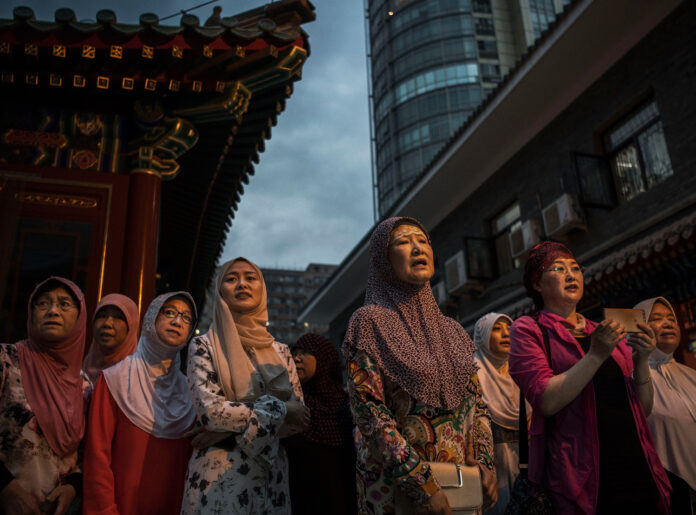Author: Luwei Rose Luqui, Fan Yang
Affiliation: Hong Kong Baptist University, State University of New York
Organization/Publisher: ResearchGate
Date/Place: February 17, 2020, Berlin
Type of Literature: Article
Number of Pages: 23
Link: https://doi.org/10.1080/01292986.2018.1457063
Keywords: China, Islamophobia, Muslims, Uyghur, Media
Brief:
The authors discuss how Chinese media has played a crucial role in strengthening Islamophobia in China. In this regard, state news agencies’ (CCTV, Xinhua and People’s Daily) reports were analyzed from 2005 to 2015. The author thoroughly exhibits the ethnic composition of Muslims in China: 20 million Muslims in China comprise 1.6% of the whole population, of which Hui (Han) is the largest ethnicity according to census, while Uyghur (Turkic) are the second largest Muslim ethnicity. After the 2017 National People Congress, China’s annual rubber-stamp parliament, Chinese officials started to make statements about “terrorist activities” in the Northwest China. In February 2017, Xinjiang implemented a ban on Burqas and big beards; “combating extremism” was the reason given for these bans, although there were already prior-existing draconian religious restrictions and social and economic restrictions against the Uyghur population. Discussing Islam is a taboo for Chinese media. The authors identify that Chinese media has stereotyped Muslims in four ways. First, state censorship and regulations do not allow Chinese media to take up political debates, so most stories related to Muslims are negatively-framed domestic issues. Second, non-Muslim Chinese have a poor understanding of Muslims and Islam, and this knowledge gap is filled by Chinese media, which creates and exploits the third reason—Chinese media is highly dependent on Western media sources, qualifying its actions as part of the post 9/11 war on terror that Western media continues to amplify. Finally, state media supports the Chinese government atrocities against Muslims in the name of curbing extremism; however, the other side of story is never heard. The authors suggest that to correct these problems the Chinese government should allow its mainstream media to understand Muslims and Islam, and that Muslims should be allowed to be part of media agencies.
By: Maryam Khan, CIGA Research Associate
.




